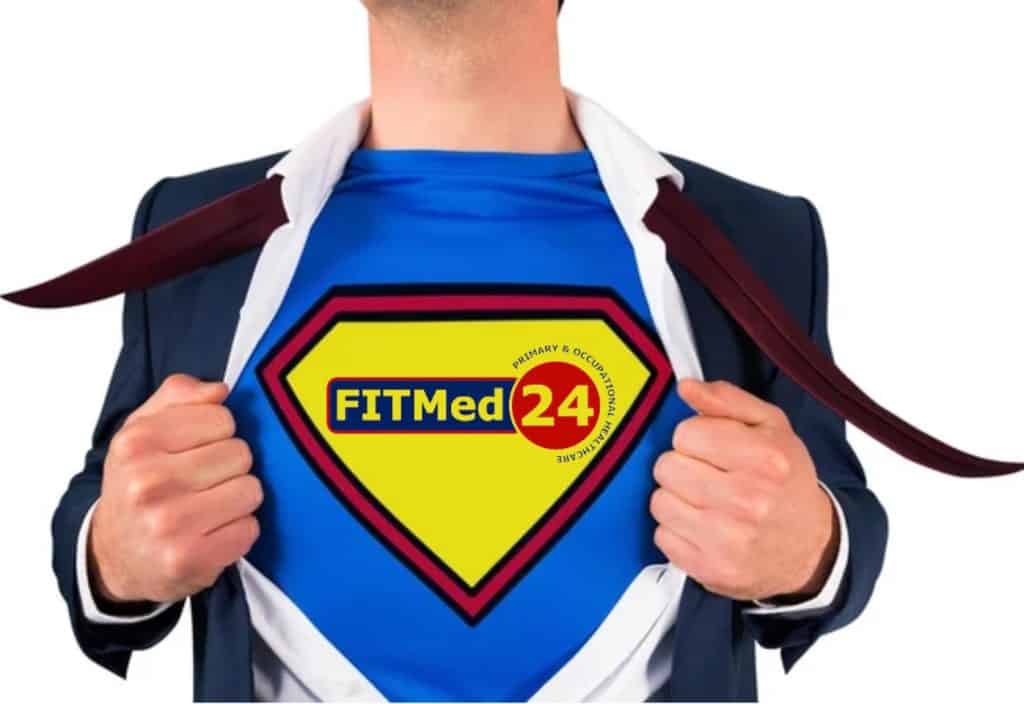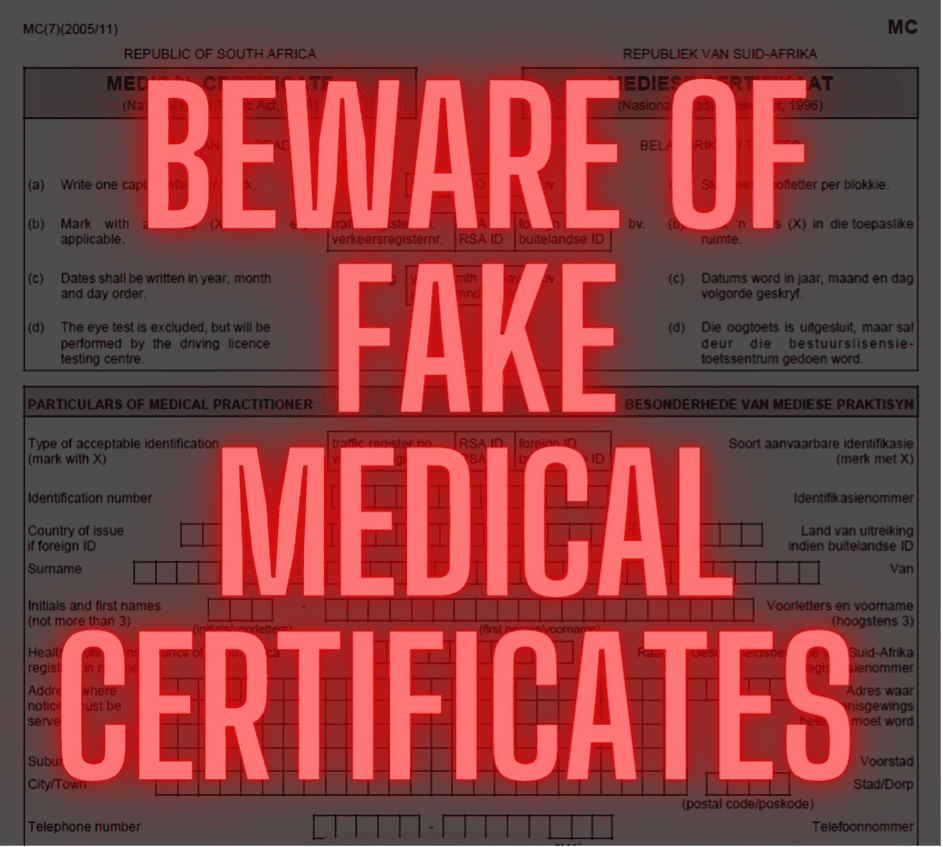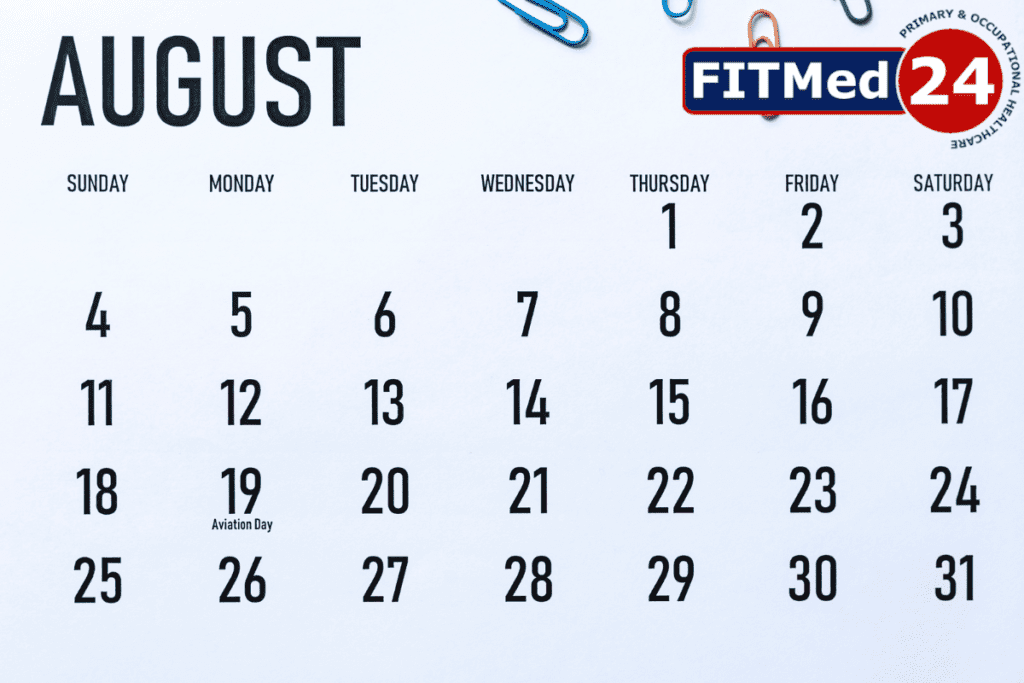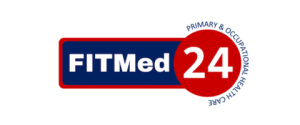In the South African workplace environment, the health and safety of employees are paramount. With a diverse range of industries—from mining and manufacturing to agriculture and services—ensuring a safe working environment is crucial for both employee well-being and organizational productivity. One effective way to achieve this is through regular hygiene surveys. This article outlines the necessity of hygiene surveys and their importance in maintaining a safe and healthy workplace.

Understanding Hygiene Surveys
Hygiene surveys involve systematic assessments of workplace conditions to identify potential health hazards. These surveys evaluate factors such as air quality, noise levels, exposure to harmful substances, and overall environmental conditions. The goal is to anticipate, recognize, and control health risks before they adversely affect employees.
Necessity of Hygiene Surveys
- Regulatory Compliance
- South Africa has stringent occupational health and safety regulations, including the Occupational Health and Safety Act (OHSA) and the Mine Health and Safety Act. Regular hygiene surveys help organizations comply with these regulations, avoiding legal penalties and promoting a culture of safety.
- Risk Identification
- Hygiene surveys are essential for identifying potential hazards in the workplace. In industries such as mining, where workers may be exposed to dust, fumes, and toxic substances, early identification can prevent serious health issues like respiratory diseases.
- Employee Health and Well-being
- The primary purpose of hygiene surveys is to protect the health of employees. By identifying and mitigating risks, organizations can reduce absenteeism, improve morale, and enhance overall well-being. Healthy employees are more productive and engaged, benefiting the organization as a whole.
Importance of Hygiene Surveys
- Prevention of Occupational Diseases
- In South Africa, many workers are at risk of occupational diseases due to exposure to hazardous materials. Regular hygiene surveys can help detect harmful exposures early, allowing for timely interventions that can prevent long-term health issues.
- Enhancing Productivity
- A safe and healthy work environment leads to increased productivity. When employees know their health is prioritized, they are more likely to perform at their best. Hygiene surveys contribute to creating a workplace culture that values health and safety, leading to improved performance.
- Cost Savings
- Investing in hygiene surveys can lead to significant cost savings in the long run. By preventing workplace injuries and illnesses, organizations can reduce healthcare costs, insurance premiums, and lost productivity. Additionally, compliance with health regulations can prevent costly fines and legal issues.
- Building a Positive Reputation
- Companies that prioritize employee health and safety are viewed more favorably by clients, stakeholders, and potential employees. Conducting regular hygiene surveys demonstrates a commitment to workplace safety, enhancing the organization’s reputation in the industry.
- Adaptation to Changing Conditions
- The South African workplace is dynamic, with evolving risks due to changes in technology, processes, and regulations. Regular hygiene surveys allow organizations to adapt to these changes, ensuring ongoing compliance and protection for employees.
Conclusion
In the South African workplace environment, hygiene surveys are not just a regulatory requirement; they are a critical component of a proactive health and safety strategy. By identifying potential hazards, promoting employee well-being, and ensuring compliance with regulations, hygiene surveys play a vital role in creating a safe and productive workplace. Organizations that prioritize these assessments are investing in their most valuable asset—their employees—ultimately leading to a healthier, more efficient, and more sustainable future.
Are Employee Medicals a Grudge Buy?
In today’s competitive business landscape, many companies view employee medicals as a necessary expense a grudge buy. However, this perception is changing as more organizations recognize the significant benefits of investing in occupational health programs. At Fitmed24, we believe that employee medicals should be seen as a strategic investment rather than a burden. Let’s explore why this shift is essential and highlight a compelling case study that demonstrates the tangible benefits of prioritizing employee health.

The Importance of Employee Medicals
Employee medicals are not just about compliance; they are crucial for maintaining a healthy workforce. Regular health assessments help identify potential health issues before they escalate, leading to:
- Reduced absenteeism: Healthier employees take fewer sick days.
- Increased productivity: When employees feel well, they perform better.
- Reduced staff turnover: leading to a more stable workforce and lower recruitment.
Case Study: International Food Manufacturing Company Gauteng.
Staff Compliment: 375 employees
Background: Our client specializing in the manufacturing of high-quality baked goods, including bread, pastries, and snack items with over 350 employees faced high staff turnover rates and frequent absenteeism due to workplace conditions.
In addition to physical health challenges, a significant number of employees have been struggling with mental health issues and chronic conditions that the employer had not fully understood or addressed. The lack of awareness and support for these conditions created an environment where employees felt isolated and unsupported, further exacerbating their struggles.
Solution
In response to the challenges faced by our client Fitmed24 implemented a holistic health program designed to address both the physical and mental health needs of employees. This multi-faceted approach aimed to create a supportive environment that fostered overall well-being and enhanced productivity.
Step 1: Yearly Employee Medicals
Fitmed24 initiated an annual employee medical assessment program to establish a comprehensive health benchmark for each employee and the organization as a whole. These assessments helped identify potential health issues early on, allowing for timely intervention and personalized health plans. By tracking health metrics over time, our customer ensured that employees received the necessary support to maintain their well-being.
Step 2: Bi-Monthly Nurse Visits
To provide ongoing support for employees with chronic conditions and general health concerns, Fitmed24 arranged for a registered nurse to visit the customers employees twice a month. This nurse served as a wellness resource for employees, offering monitoring and management for chronic diseases and addressing any ailments that may arise. This accessibility encourages employees to seek help promptly, reducing the risk of prolonged health issues and absenteeism.
Step 3: Access to Registered Counsellors
Understanding the importance of mental health and its impact in the workplace, Fitmed24 also introduced access to a registered counsellor for employees facing personal challenges. Whether dealing with the loss of a loved one, traumatic experiences, or financial stress, employees could confidentially seek support from a professional. This initiative not only helped individuals cope with their struggles but also fostered a culture of openness and support within the workplace.
Takeaway from our Customer Case Study
Health Issue Detection: The program successfully identified 27 health issues among employees, including 3 severe cases that required immediate attention. This proactive approach underscores the value of regular health assessments in maintaining employee well-being.
Noise Reduction Initiatives: To address environmental challenges, our customer implemented two basic engineering systems aimed at reducing noise levels in the workplace. This not only enhanced the working conditions but also contributed to overall employee comfort and productivity.
Chronic Illness Management: The establishment of a chronic illness management system, coupled with regular monitoring of employees, ensures that health concerns are managed effectively. This ongoing support is vital for maintaining a healthy workforce and minimizing absenteeism.
Conclusion
By implementing this comprehensive health program, Fitmed24 helped our customer create a healthier, more resilient workforce. Addressing both physical and mental health needs demonstrated a commitment to employee well-being, ultimately leading to improved morale, reduced absenteeism, and enhanced productivity. With ongoing support and resources in place, our customer is poised to transform its workplace culture and promote a thriving environment for all employees.
Exposing the Risks of Fake Occupational Medical Certificates: Why Verification is Crucial
In today’s competitive business environment, ensuring workplace safety and compliance is paramount. However, a disturbing trend has emerged where companies fall victim to fraudulent practices involving fake occupational medical certificates. These certificates, purportedly issued by reputable medical providers, often lack authenticity and pose significant risks to workplace safety and regulatory compliance.

The Rise of Fraudulent Practices
Fraudulent issuance of occupational medical certificates has become a growing concern across industries. These certificates are typically used by individuals seeking employment or access to job sites where health and safety regulations are stringent. Unfortunately, unscrupulous entities exploit this demand by fabricating certificates that appear legitimate at first glance.
The Consequences of Fake Certificates
The repercussions of accepting fake occupational medical certificates can be severe. Employers unknowingly expose themselves to risks such as:
- Compromised Safety Standards: Employees with fabricated medical clearances may not meet necessary health requirements, jeopardizing workplace safety.
- Legal and Regulatory Penalties: Non-compliance with health and safety regulations can result in fines, litigation, and reputational damage.
- Operational Disruption: Hiring unqualified individuals can lead to increased accidents, absenteeism, and productivity losses.
- The Importance of Verification
To mitigate these risks, companies must adopt rigorous verification processes for all medical documents submitted by employees and contractors. Verification ensures that certificates are authentic and issued by legitimate medical providers. This crucial step safeguards workplace integrity and upholds regulatory standards.
In South Africa, it is a criminal offense to fake or an occupational medical certificate. Fabricating or falsifying any medical document, including occupational medical certificates, constitutes fraud and can lead to legal consequences under South African law.
Such offenses may be prosecuted under various statutes, including those related to fraud, forgery, and misrepresentation. Penalties for such actions can include fines, imprisonment, or both, depending on the severity and circumstances of the offense. Therefore, it is crucial for employers and individuals to adhere to legal and ethical standards regarding the authenticity of medical documents to avoid legal repercussions.
Introducing FitMed24: Setting the Standard in Certificate Security
FitMed24 stands at the forefront of combating certificate fraud with advanced security features embedded in their occupational medical certificates. These features include:
- QR Codes: Each certificate is equipped with a unique QR code that links to a secure online verification portal.
- Authentication Safeguards: Multiple layers of authentication ensure the validity of the certificate and the issuing authority.
- Real-Time Verification: Employers can instantly verify the authenticity of certificates through FitMed24’s customer portal, enhancing efficiency and accuracy.
Conclusion
In conclusion, the prevalence of fake occupational medical certificates poses significant risks to businesses and their employees. By prioritizing rigorous document verification and partnering with trusted providers like FitMed24, companies can safeguard workplace safety, uphold regulatory compliance, and protect their reputations. Embracing secure, authenticated certificates not only mitigates fraud but also fosters a culture of accountability and trust within the workforce.
Stay informed. Stay secure. Choose authenticity with FitMed24
The need for driver wellness
Understanding the Crucial Need for Driver Medicals: A Comprehensive Guide
In today’s bustling world, where the roads are packed with vehicles of all shapes and sizes, ensuring driver safety is paramount. One often overlooked aspect of driver safety is their health. It’s not just about following traffic rules; it’s also about ensuring that drivers are physically and mentally fit to operate vehicles safely. This is where driver medicals come into play – a critical component in safeguarding both drivers and other road users. Let’s delve into why drivers need medicals and how they contribute to a safer driving environment.

Exploring the Vital Connection Between Driver Health and Safety
The correlation between driver health and road safety cannot be overstated. A driver’s physical and mental well-being directly influences their ability to react swiftly and make sound decisions while behind the wheel. Health conditions such as cardiovascular issues, epilepsy, diabetes, and vision problems can impair a driver’s capabilities and increase the risk of accidents on the road. Furthermore, fatigue and stress, which are common in today’s fast-paced lifestyle, can significantly impact driving performance, leading to hazardous situations.
Understanding the Significance of Driver Occupational Health Assessments
Occupational health assessments, including driver medicals, play a crucial role in identifying any health issues that might compromise a driver’s ability to operate a vehicle safely. These assessments involve thorough evaluations of a driver’s physical and mental health, including vision and hearing tests, cardiovascular screenings, and assessments for conditions like sleep apnea. By identifying potential health concerns early on, employers can take necessary measures to address them and ensure that their drivers are fit for duty.
Ensuring Compliance with South African Legislation for Driver Health
In South Africa, the law mandates that drivers undergo regular medical assessments to maintain their licenses. The Road Traffic Management Corporation (RTMC) sets out guidelines for these assessments, ensuring that drivers meet specific health standards to operate vehicles safely. Failure to comply with these regulations can result in fines, license suspension, or even legal action in the event of an accident. Therefore, undergoing regular driver medicals is not just a matter of safety but also a legal requirement that drivers must adhere to.
Promoting Road Safety Through Preventive Measures
Driver medicals aren’t just about identifying existing health issues – they’re also about preventing potential risks on the road. By proactively assessing drivers’ health, employers can implement preventive measures to mitigate the likelihood of accidents. This might include providing health and wellness programs, offering support for managing stress and fatigue, and implementing policies that promote healthy lifestyles among drivers. Ultimately, these measures contribute to creating a safer driving environment for everyone on the road.
In conclusion, driver medicals are a critical component of road safety, linking driver health directly to the prevention of accidents and the protection of lives. By prioritizing regular medical assessments, employers can ensure that their drivers are physically and mentally fit to handle the responsibilities of operating vehicles safely. Moreover, compliance with South African legislation regarding driver medicals is not just a legal obligation but a moral imperative to safeguard the well-being of all road users. Let’s continue to prioritize driver health and safety to create a safer and more sustainable future on our roads.
On-site Medicals
Serving Industry’s Occupational Health Requirements Through On-Site Medicals
Despite being one of the most technologically advanced societies on the African content, it is only in relatively recent times that South Africa has begun to demonstrate any serious concerns about the health and safety of its citizens in their various places of work. Although there remains much to be done, there have been two significant advances that are now helping to address this previously neglected need.

In June 1993, parliament enacted the Occupational Health and Safety Act compiled by the Department of Labour. The act defined the guidelines for the protection of workers from the hazards presented by their working environment. It also exposed the need for specially trained practitioners and a registered qualification for doctors and nurses. Given the overburdened state of public healthcare, the responsibility for conducting on-site inspections and employee medicals falls to the private sector and must be paid for by the employer.
While contributing to the medical aid premiums of employees and their dependents has become an accepted practice for most, many companies are only prepared to finance those measures that they deem as important to their profitability. In practice, however, what such companies fail to realise is that the compensation payment arising from a single avoidable accident or a debilitating work-related illness could exceed the modest cost of financing such services by several orders of magnitude. Just imagine the cost of a dozen or so injured or ill as a result of inadequate health and safety measures.
Of those who fail to seek such help, reluctance is often due to concerns that mass staff absenteeism while staff members undergo examinations could disrupt production. To allay such concerns and to eliminate the need for staff to travel long distances to a clinic, FITMed24, our Kempton Park-based company specialising in occupational health matters, now offers the option of conducting employee medicals on site.
With the aid of a fleet of mobile clinics, we are able to dispatch a team of registered OHS specialists to destinations in most of the country’s nine provinces. The objective is to meet the needs of large groups operating at high-production facilities. At each visit, selected employees are subjected to standard examinations, including BMI, blood pressure, lung function, vision and hearing tests. In addition, other tests, such as an electrocardiogram (ECG), are offered on request, along with any others that may be indicated for workers in specific occupations, such as mining, construction, aviation and food handling.
For those companies whose personnel are required to work in hazardous environments and whose employers operate a health surveillance programme, we conduct our on-site medicals according to the protocols defined. In less hazardous circumstances, however, the mobile teams will be happy to provide clients with a more generic programme of testing.
In today’s competitive global market, more employers are becoming aware that their employees are not simply expense items, but a human capital resources with the potential to ensure a company’s success. Underlining this realisation, there has been a marked increase in the number of employers that now accept the need for more stringent measures to monitor and protect the health of their workers. Don’t risk the costly consequences of a spate of work-related illnesses. Talk to us at FITMed24 about our affordable on-site medicals.
Occupational Health Medicals
Book Your Occupational Health Medicals with FITMed24
When it comes to workplace health and safety in South Africa, it is the responsibility of the business owner and managers to ensure that working conditions are safe and healthy and also to ensure that new recruits are fit and able to carry out their intended tasks. By carrying out occupational health medicals on all new and existing staff members, you can ensure that you are hiring the right people and can also track staff members’ health to ensure that the work environment is not negatively affecting your people.
While we have a walk-in facility available, you can save time and money by having our team come to you. All of our medical staff members are professionals in the industry and have all the required qualifications, certificates, and experience required to carry out tests with accuracy and provide reports that are easy to understand.

Be OHSA Compliant
The Occupational Health & Safety Act of 1993 states that medical surveillance is a planned medical process which involves carrying out various non-invasive tests on workers. Included in the tests are hearing tests, vision tests, breathing tests, and X-rays. These tests are essential in order to be OHSA compliant in South Africa.
Occupational health medicals should be viewed as a safeguard for both employers and employees. The objective is to detect potential negative impacts and possible hazards early on, so that health and safety is not compromised. If your workers are exposed to any potential workplace risk, it is required by law that you carry out occupational health medicals on an ongoing and regular basis. What sort of risks are common? If your workers are exposed to any of the following, you should be carrying our occupational health medicals:
- Noise
- Hazardous chemicals
- Biological agents
- Lead
- Dust
- Asbestos
Regular testing will ensure that the work environment is set up in such a way that there are no negative effects on workers.
At FITMed24, we offer medical testing services for the workplace in many different industries. Our team is well experienced and dedicated to assisting both staff and employers in keeping the workplace healthy and safe and in ensuring that action is taken when risk is suspected or proven.
If you would like to find out more about our occupational health tests and how your business can benefit from choosing FITMed24 as its service provider, simply get in touch with us. We are available via email and telephone and look forward to assisting you further.

